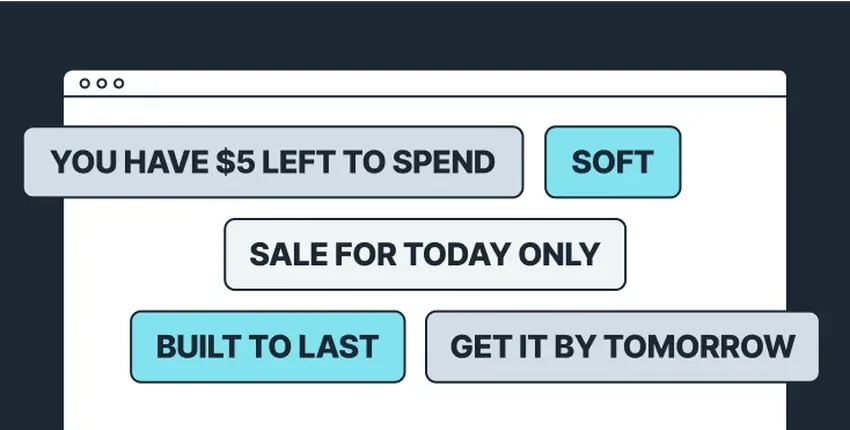
Last updated Fri Apr 18 2025
Push Notifications: A Complete Beginner's Guide [2024]
In this post, we'll take a close look at what push notifications are, how they work, and why they have become an essential feature for countless use cases.
Get started:
Drive visits and sales with push notifications
Drive potential customers back to your website with web pushes
What is a push notification?
Push notifications are brief messages sent to users' devices, such as phones or computers, utilizing server-client communication. They alert about promotions, new content, or updates, engaging users through timely information. This technology enhances direct communication for marketing and user engagement purposes.
If pushes are designed to engage customers outside of a website, onsite notifications can do it on the website.
Learn more: push notifications vs onsite notifications
How push notifications work
Push notifications use a simple yet effective technology.
When someone subscribes to push notifications from your online store (via a “click here to enable notifications” form), their device establishes a connection with your server.
When there's something new, like a sale promotion or a brand update, your server sends a message to their device (desktop or mobile), triggering a push notification. Clicking the notification takes the visitor to the website where they subscribed.
Since push notifications are permission-based, they give the user more control over the messages they receive.
This direct communication helps keep your customers informed and engaged without them actively checking your website. This is particularly useful for online businesses, both ecommerce and SaaS, as they can drive traffic to their website on a regular basis.
Interesting fact
The first push notification was reportedly sent by BlackBerry in 2003. The company’s idea of push notifications (called “Push Services” back then) was to inform users about new emails in real-time, with no need to manually check their inbox.
Types of push notifications
| Push Notification Type | Platform | Purpose | Examples |
|---|---|---|---|
| Web push notifications | Desktop | Engage desktop users through browser updates | New article alerts, limited-time promotions |
| Desktop push notifications | Desktop | Deliver pop-up alerts for timely information | Breaking news, software updates |
| Mobile app push notifications | Mobile | Provide personalized updates to smartphone users | In-app promotions, order status updates |
Get started with pushes
These are some of the top-rated apps for ecommerce, B2B, and blogs:
What industries use push notifications
This chart shows the approximate percentage of companies using both web and mobile push notifications in the following industries:
| Industry | Percentage | Examples of campaigns |
|---|---|---|
| Ecommerce | 30% | Promotions, order confirmation and updates, cart abandonment |
| Media and publishing | 30% | Breaking news, article updates, subscription |
| Travel and hospitality | 25% | Travel alerts, booking confirmations, deals |
| Gaming | 40% | Game updates, event notifications, re-engagement |
| Finance and banking | 15% | Account alerts, transaction notifications |
| Health and fitness | 30% | Workout reminders, personalized tips, goals |
| Technology and SaaS | 35% | Product updates, feature announcements |
Based on Business of Apps data
Why try web push notifications?
The biggest benefits of using push notifications are:
drive traffic to your website: keep users informed and engaged with timely updates
give timely information: provide real-time updates on relevant content or services
improve user retention: encourage return visits by delivering personalized notifications
share promotions and offers: boost sales and conversions through exclusive deals
increase business visibility: remain on the radar with regular, non-intrusive reminders
improved customer satisfaction: meet user expectations by delivering pertinent and timely content
Types of push notification campaigns
| Type | Description |
|---|---|
| informational push notifications | These notifications provide users with valuable information such as news updates, weather forecasts, or general announcements. They aim to keep users informed about relevant and timely content. |
| transactional push notifications | Typically associated with online transactions, these notifications confirm the completion of an action. Examples include order confirmations, shipment tracking updates, or payment receipts. |
| promotional push notifications | Businesses use these notifications to promote special deals, discounts, or exclusive offers to users. They aim to drive engagement, boost sales, and create a sense of urgency. |
| social media push notifications | Apps with social features send notifications for friend requests, likes, comments, or direct messages. These keep users connected and engaged with their social circles. |
| app update push notifications | When an app has new features, improvements, or bug fixes, it sends notifications to inform users about the availability of an update. This helps keep apps current and secure. |
| location-based push notifications | Leveraging geolocation services, these notifications are triggered when users enter a specific area. They are often used for promotions, special offers, or information relevant to a particular location. |
| breaking news alerts | News apps use push notifications to instantly inform users about significant events or breaking news. This ensures users stay updated on current affairs in real-time. |
See how online businesses are using pushes:
Best practices for push notifications for businesses
These are the most common best practices for push notifications used by businesses to maximize the engagement and effectiveness of their push notification strategy.
Opt-in clarity
Clearly explain the value of push notifications when you offer your visitors to subscribe. Ensure users understand the benefits, and make opting in straightforward to maximize user consent.
Personalization
Tailor notifications based on user preferences and behavior. Personalized messages increase relevance and user engagement, avoiding generic content that may lead to disinterest.
Timing
Send notifications at appropriate times to avoid interrupting users. Consider time zones and user activity patterns to ensure messages are well-received, enhancing user experience.
Segmentation
Segment your user base based on demographics, behavior, or preferences. Targeted notifications are more likely to resonate with specific groups, increasing the chances of user engagement.
A/B testing
Experiment with different notification formats, content, and timings through A/B testing. Analyze the performance to refine your approach, optimizing for maximum engagement without overwhelming users.
Push notifications FAQs
Are push notifications secure?
Secure push notifications require encrypted communication (HTTPS), sender/receiver authentication, and data integrity measures. User consent and privacy adherence are essential for maintaining a secure push notification system.
What are the most common examples of push notifications?
Push notifications include updates for apps, breaking news alerts, live sports scores, weather reports and updates, notifications from social media platforms, and special offers from ecommerce stores.
What is the difference between web (desktop) push notifications and mobile push notifications?
Web push notifications are messages sent by websites to desktop browsers, engaging users with updates. Mobile push notifications are alerts from smartphone apps, delivering timely information to enhance user interaction. The key difference lies in the platforms targeted: web for browsers, and mobile for apps.

Pawel Lawrowski
Pawel is the Head of Growth at Wisepops and an expert in lead generation, popups, ecommerce, and onsite marketing.
With over a decade of experience in digital marketing and ecommerce, he has both build marketing teams from scratch and led strategic business growth projects.
Pawel has worked with countless online businesses on marketing strategies and is now sharing his knowledge. Previously, he was an head of growth at Tidio, where his responsibilities ranged from creating marketing materials to building acquisition channels.
Education
West Pomeranian University of Technology
Certifications
Marketing Strategy (course)
Advanced Growth Strategy (course)
Retention & Engagement (course)
Related articles

6/7/2023
This guide offers psychology-backed copywriting tips that you can use to boost ecommerce sales.
